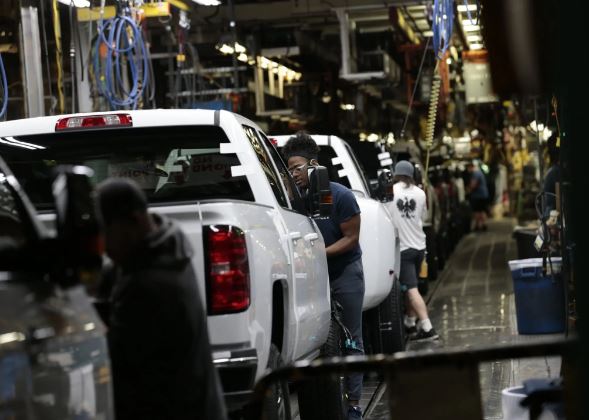A vote on the United Automobile Workers (U.A.W.) union’s tentative contract agreement with General Motors (G.M.) is facing unexpected resistance from veteran workers, with the final result expected to be determined by a narrow margin. Although voting at most union locals has been completed, several large plants in Michigan, Indiana, and Tennessee saw a majority of workers rejecting the contract. The final outcome is anticipated as early as Thursday evening.
The contract, which offers record wage increases, has been approved at Ford Motor and Stellantis, the maker of Chrysler, Jeep, and Ram vehicles. However, at G.M., opposition from many veteran workers has emerged, particularly regarding their desire for increased company contributions to retirement plans and the cost of health care for retirees.
The tentative agreement proposes a 25 percent increase in the top wage over four and a half years, exceeding the combined wage increases the union has secured over the past 22 years. Newer hires will also experience significant pay increases that bring them to the new top wage, and recently hired workers will see their hourly pay double. Additionally, the agreement includes cost-of-living adjustments, enhanced company contributions to pensions and retirement plans, increased paid time off, and the ability to strike if any plant is closed during the contract term.
Despite the significant wage increases, some veteran workers, like David Miller, a 20-year G.M. veteran in Michigan, are dissatisfied with the absence of retiree health benefits in the contract. Miller expressed concerns about the lack of health care coverage for retirees, emphasizing that at the age of 65, he is reliant on Medicare.
As of Wednesday afternoon, an online vote tally maintained by the union showed just over 54 percent of votes in favor of the contract. However, this tally did not include numbers from some major plants, and the final result is expected to be closely contested.
If the tentative agreement is voted down, it would represent a setback for U.A.W. President Shawn Fain, who had pledged a more aggressive approach in contract talks to secure significant pay increases and address past concessions. The contracts with the three Detroit automakers, once ratified, will be followed by Fain’s efforts to organize workers at nonunion plants in the South owned by foreign automakers like Toyota and Honda, as well as nonunion plants operated by Tesla in California and Texas.
The outcome of the vote will determine the success of Fain’s strategy and influence the trajectory of labor negotiations in the automotive industry. The contracts with G.M., Ford, and Stellantis were initially seen as a landmark achievement, but the close ratification vote at G.M. suggests challenges and high expectations.
Fain has ambitions beyond the Detroit automakers and hopes to extend the U.A.W.’s influence to nonunion plants, where some companies have already increased wages for factory workers in response to the new U.A.W. contracts.
As the final result hangs in the balance, the G.M. contract vote reflects the complexities of balancing the interests of various worker groups within the union, with the potential for broader implications in the evolving landscape of labor relations in the automotive sector.

